YntraDose® overcomes the main limitations of external beam radiotherapy
The most common form of radiotherapy, Stereotactic Body Radiotherapy (‘SBRT’) involves focussing external radiation into tumour(s) in the body. However, collateral damage is imparted to healthy tissue in the path of the beams and organ movement significantly limits the administered dose. More advanced Proton Beam Radiotherapy (‘PBRT’) greatly reduces collateral damage by employing proton beams of fixed penetration depth but still face the challenge of organ movement, however, its widespread adoption is heavily impaired by the cost of building treatment suites and low patient throughput. As such, these approaches are seldom used to treat abdominal organs such as the liver and pancreas.
Introducing YntraDose®, designed as an easy-to-use, targeted and personalised radiotherapeutic treatment option that overcomes the limitations of SBRT and PBRT whilst maximising the administered radiotherapeutic index for the patient in a single day case treatment session.
Depending on the clinical setting, YntraDose® can either be percutaneously delivered to the tumour under radiological guidance or directly into the tumour bed following resection.
YntraDose Platform comprises four key product components:
YntraDose®Guide
YntraDose-Guide dosimetry software utilises BetaGlue Therapeutics’ proprietary algorithms to provide personalised treatment planning as well as post-treatment dosimetry assessment.
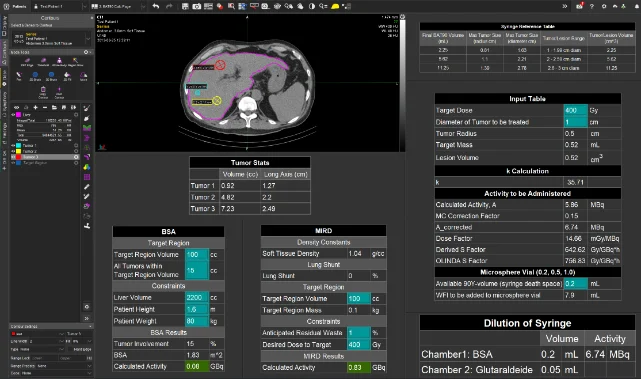
YntraDose®Glue
YntraDose-Glue is a biocompatible ‘bioglue’ available in either 2ml, 5ml or 10ml volume sizes enabling a range of lesion sizes to be treated.
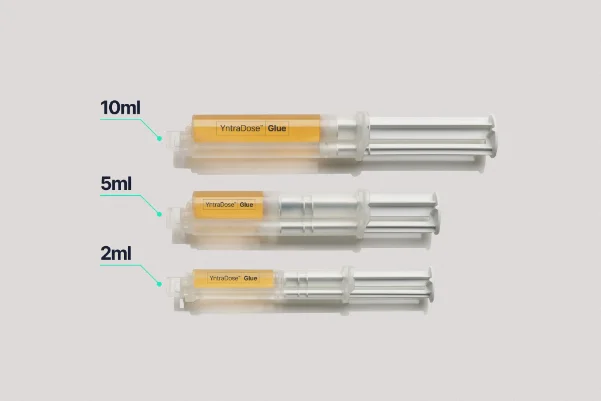
YntraDose®90
YntraDose-90 is supplied in a sterile vial containing a fixed dose and volume of Yttrium-90 microspheres optimised for ease of handling and use in the Nuclear Medicine department.
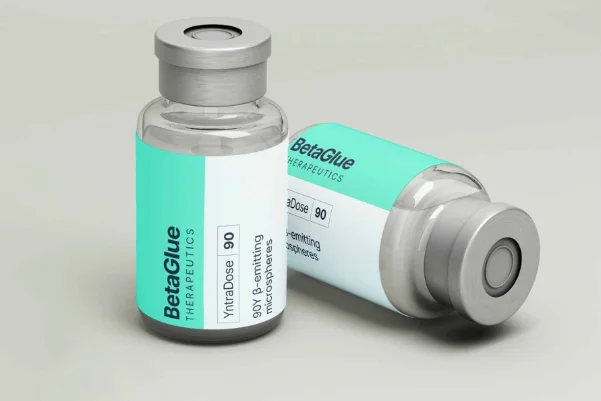
YntraDose®Deliver
YntraDose-Deliver includes a ‘cochlea’ mixing tip and an introducer/needle assembly optimized for percutaneous administration under radiological guidance in the operating room.

How YntraDose works
By working closely with our clinical advisors, the YntraDose® Platform has been carefully designed to provide a convenient and easy-to-use suite of software and product components. Tailored for use by Nuclear Physicians and Interventional Radiologists a personalised, targeted and precise radiotherapy treatment can be achieved on a tumour-by-tumour and patient-by-patient basis.
01Plan
Use YntraDose-Guide to contour target lesion(s) for personalized treatment planning in terms of treatment volume and dose

02Prepare
In the Nuclear Medicine department the specified personalised YntraDose-90 dose and volume is introduced into the specified personalised syringe volume of YntraDose-Glue.
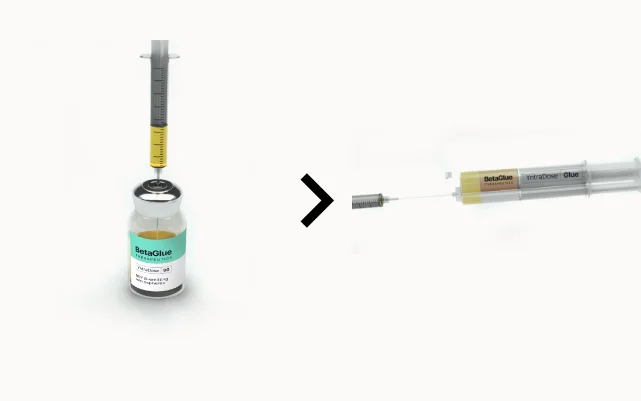
03Treat
In the Operating Room the YntraDose-Deliver components are attached to the syringe prior to intratumoral administration under ultrasound or CT radiological guidance.
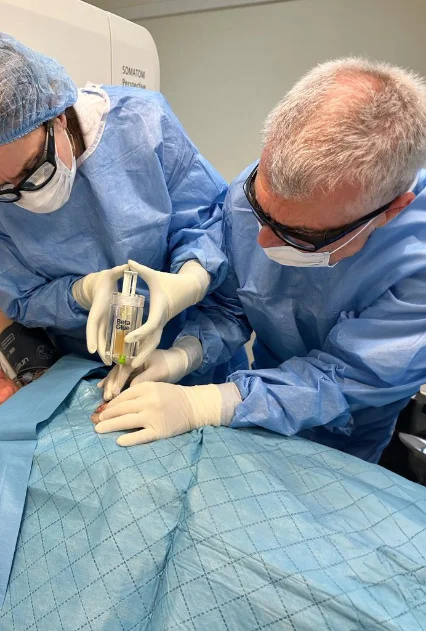
04Assess
Finally, YntraDose-Guide is used to assess 90Y PET scans in order to quantify post-treatment dosimetry on a patient-by-patient basis.
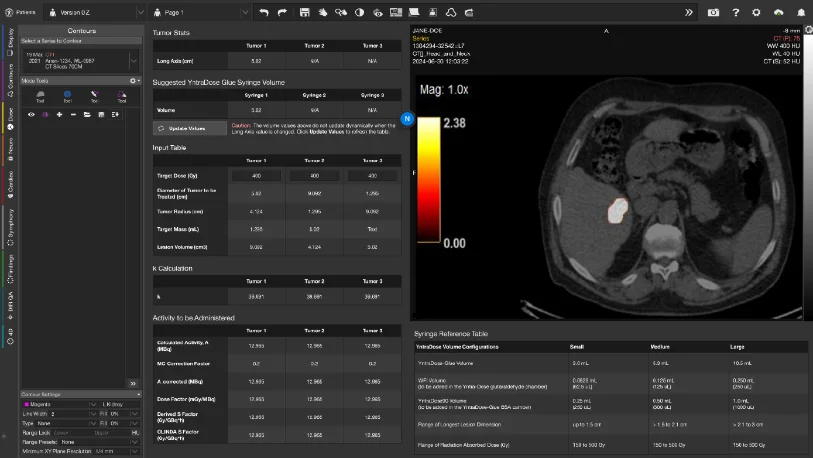
Publications
A Novel Injectable Hydrogel Matrix Loaded with 90Y Microspheres for the treatment of Solid Tumours. Amato et. al. Anticancer Research 42:827-836 (2022).
In-vivo models for the performance and safety of BAT-90, a novel 90-Yttrium-based internal radiotherapy platform. Amato et. al. In Vivo 36:2052-20 (2022).
Feasibility, technique and initial results of HCC percutaneous image-guided radio-ablation using BAT-90 from an ongoing first-in-man clinical trial. Mizandari et. al. Global Embolisation Oncology Symposium Technologies (GEST) Symposium Poster (2023).
Advantages of YntraDose®
For users (nuclear physicians & interventional radiologists)
Easy to Use: YntraDose®-Guide dosimetry software enables consistent and simple treatment planning, product preparation and post-treatment dosimetry
Personalised & Precise: The unique dose and volume of YntraDose® is determined on a patient-specific basis and YntraDose®-Glue ensures no off-target radiation
Immediate: The YntraDose® Platform is designed to enable ablation zone assessment at the time of treatment
For patients
Safe: YntraDose® is designed to avoid the need for general anaesthesia, to eliminate off-target radiation and with the ability to treat tumours near delicate organ structures
Convenient: Radiotherapy provided as a single day-case procedure as an outpatient
Minimally Invasive Procedure: Simple administration using an introducer/needle
For healthcare providers
Accessible: Provides a radiotherapeutic treatment option to currently ineligible patients
Cost Effective: No need for capital investment in equipment and infrastructure, and procedures are ‘non-DRG’ day-case

Intellectual property
BetaGlue® Therapeutics possesses a wholly owned intellectual property estate across multiple jurisdictions. In addition to both granted and pending composition of matter, product by process and medical use patent claims, the company also owns a significant body of know-how.
BetaGlue® and YntraDose® are registered trademarks of BetaGlue Therapeutics SpA.

